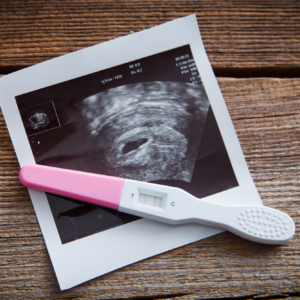3 Dos And Don’ts Of Taking A Pregnancy Test
Many women take pregnancy tests for a couple of reasons. Most, however, reach out for one when they’ve missed a period and recently had unprotected sex before that. Those three minutes may seem relatively short, but for a woman waiting for those lines to come, it can be very exciting and nerve-wracking at the same time. That’s what a simple over-the-counter pregnancy test kit does.
While it may not seem like a particularly complicated thing to do at home, you may be surprised to find out how there could still be many women who botch a pregnancy test. The instructions in the kit are precise, and each must be followed to the dot. Plus, there are a few things you should and shouldn’t do. These specific instructions will increase the chances of a super-accurate pregnancy test result to start your journey toward pregnancy and welcoming a new baby.
Read on to find out what these dos and don’ts are.
The Do’s
-
Do Purchase Only A Good One
Yes, there are good pregnancy test kits and sketchy ones where the results may not be so trustworthy. If you’re looking for kits to keep at home, buy pregnancy tests online at Fertility2Family, among other sellers. You can also head out to the pharmacy and ask them for their trusted brands.
You’ll want to purchase a good one because you’ll want to be sure of the results you get. This means not getting either a false negative or false positive, whatever result you hope to have. Furthermore, buying a reliable pregnancy test can save you from doing multiple other confirmatory pregnancy tests, where the next time around, your next one will finally be at your OB-GYN’s clinic.
-
Do Take Note Of The Signs It’s Time To Take A Test
A missed period is the most significant indicator that it’s time to take a pregnancy test. But this isn’t the only sign. If you’re feeling any of the following, you can also take these signs that it’s a good time to do a pregnancy test:
- Abdominal bloating
- Breast soreness
- Fatigue
- Frequent urination
- Vomiting
Those mentioned above are typically the earliest signs you might be pregnant, making them good telling points to take a test. If the result is negative and your symptoms bother you, visit your doctor, as those could also be symptoms of any other underlying medical problem.
-
Do Take The Test As Soon As You Wake Up
Taking a pregnancy test very early in the morning or as soon as you wake up is highly recommended. This is when a woman’s urine is at its highest point of concentration, enhancing the chances that the test will detect the hormone levels in her urine.
During early pregnancy, the amount of HCG in a woman’s blood and urine doubles significantly, usually every two to three days. So, if you take the test at the right time and in the morning, the chances of an accurate result also increase.
The Don’ts
Taking a pregnancy test too soon can result in a false negative result, which means the test comes out negative even when you could actually be pregnant. As excited as you may be with the prospect that this time around, you’re pregnant, it’s a good idea to wait it out until it’s the right time.
Generally, you can carry out a pregnancy test and have an accurate result after the first day of your missed period. If you haven’t been tracking and don’t know when your period is next due, you can do the test at least 21 days after unprotected sex.
-
Don’t Take An Expired Pregnancy Test Kit
Some women like to keep a few test kits at home, and if it’s been so long since you last pulled one, the ones you have at home now could be expired. Always check the expiration date. Pregnancy kits have an expiration date, wherein the results already start to be inaccurate beyond that date.
If the date has passed, throw that kit away and take a new one instead.
-
Don’t Neglect The Test Kit Instructions
Even if you’ve done so many home pregnancy test kits in the past, each kit could still have its instructions. Always read carefully before urinating on the cup or the stick. Reading the instructions carefully ensures a complete understanding of what you have to do to have accurate results.
Final Thoughts
With the dos and don’ts above, you should feel more confident about getting an accurate result on your home pregnancy test. If you’ve long been trying to conceive and it’s still negative, perhaps you should take this as a sign to visit your OB-GYN and discuss their medical advice. If you’ve gotten a positive result, the same effect is expected, as now, your OB-GYN will walk you through this pregnancy journey.



Leave a Reply
Want to join the discussion?Feel free to contribute!